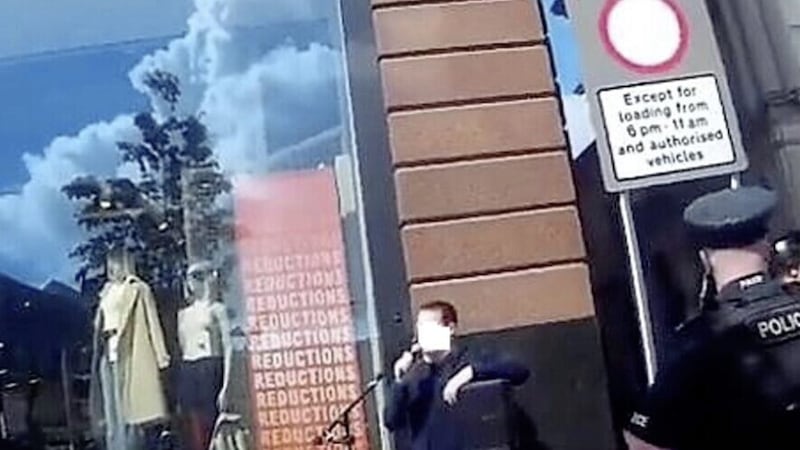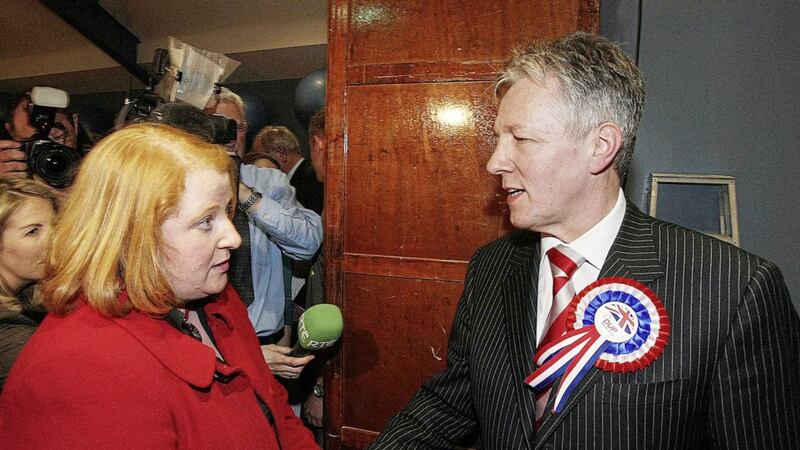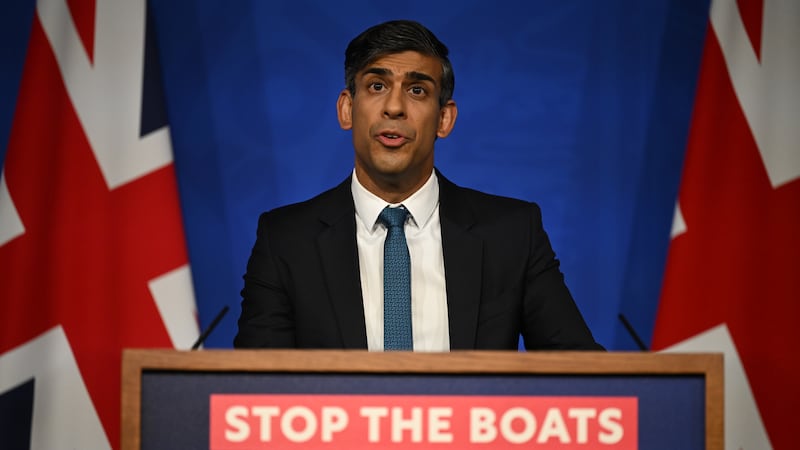The incident just before last weekend’s Belfast Pride parade would have been a non-incident without the use of an amplifier.
Had the man shouting insults about gay people been limited to the volume of his voice, he would have been one person on a crowded pavement, barely audible metres away. Passers-by could have ignored, mocked or challenged him without the matter progressing beyond a robust exchange of views.
If someone had called over the police, an officer could have made him leave or desist using a wide range of legal and discretionary powers.
Instead, multiple officers formed a cordon around the man and filmed him for later investigation. This preposterous spectacle frustrated an already upset crowd.
Read more:
Preacher quizzed over Belfast Pride ‘hate crime' claims message was misconstrued
Belfast Pride organisers ‘to discuss alleged hate crime' with police
Editorial: No place for hate speech at Pride parade
Alliance councillor Micky Murray asked for a meeting with the PSNI to find out why the man was not moved on. The explanation is easy to guess.
Police will have prepared a public order management plan for the day, as they do with all major events, complete with detailed steps on protecting everyone’s rights.
On the whole, filming counter-demonstrators for later investigation is a sensible approach in such plans and has helped keep the peace in Northern Ireland during fraught parades and protests.
While it is clearly a daft approach to take to one person shouting on the street, the impact of an amplifier can make this unclear. By creating a performance, it switches officers from a mindset of ‘move along now sir’ to ‘activate the counter-demo plan’.
Having taken last weekend’s incident this seriously, the PSNI felt obliged to describe it in serious terms, sombrely declaring it is “being treated as a hate crime”.
There is no such thing as ‘a hate crime’ in Northern Ireland law – only crimes where hatred may be considered an aggravating factor, like intoxication. So police and prosecutors will have to try alleging an actual crime, presumably some minor public order offence, where ‘hate motivation’ cannot even be considered in sentencing.
The accused would naturally be entitled to a full defence. This farrago can only cause further upset to gay people and Christians – and gay Christians – while making the criminal justice system look ridiculous.
All this could be avoided by simply licensing the use of amplifiers. Regulating public performances and other potential noise nuisances is a routine, uncontentious aspect of the law. No official debate is required over what is being shouted, preached or sung.
Senior police officers are sometimes accused of being more interested in fashionable grandstanding than mundane law and order. Sometimes this accusation is even correct but it is far more true of politicians, the media and civic society in general.
Northern Ireland has a particular, long-standing issue with street preachers in our town and city centres. Their numbers may be falling but their volume is rising, as is the contention from their increasingly marginal views.
Almost everyone finds it impossible to discuss this without getting into a debate about what is said and the right to say it, rather than focusing on the environmental health impact and sheer rudeness of making a noise as loud as a jet plane or as persistent as a jack-hammer. Live and let live is the philosophy of a bygone age.
In 2021, Belfast City Council officials proposed licensing the use of amplifiers, on penalty of a £500 fine. Licences would be restricted by time and number. The aim was to reduce excessive noise in the city centre from buskers, preachers and campaign groups, without getting bogged down in arguments about free speech and freedom of religion.
But councillors will not be constrained. Although Sinn Féin and the SDLP have supported the proposals in subsequent debates, they have done so to stop ‘hate speech’. The DUP has proclaimed the right of preachers to offend. People Before Profit has cited the right to protest as if that implies a right to amplification, because Trots live to holler into a microphone. If they want a slogan for this they could use ‘stand by your transistor’. The proposals are still slowly progressing through City Hill.
Of course, this argument cannot be confined entirely to technicalities. There are legal restrictions on speech at any volume and various ways a random individual might have their voice amplified – a newspaper column, for example.
The difference is I am not running up to you in the street and shoving this page in your face. Keep that perspective on the problem and it is not that difficult to solve.









